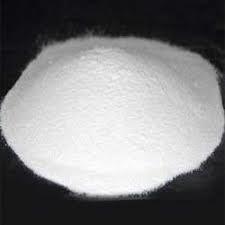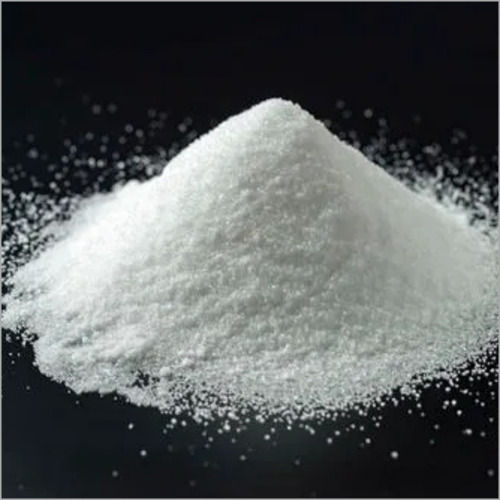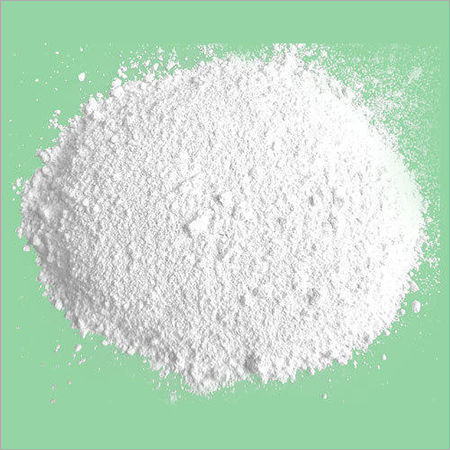

Precipitated Silica
40.00 - 60.00 INR/Kilograms
Product Details:
X
Precipitated Silica Price And Quantity
- 40.00 - 60.00 INR/Kilograms
- 500 Kilograms
Precipitated Silica Trade Information
- 7 Kilograms Per Week
- 1 Week
- Yes
- Free samples available with shipping and taxes paid by the buyer
- Box Packing
- Asia, Australia, Central America, North America, South America, Eastern Europe, Western Europe, Middle East, Africa
- All India
Product Description
Shanti Chemical Works manufactures Precipitated Silica is valued globally for its properties index. This agent is used for thickening the end products along with anti corrosion pigments in order to enhance the durability and sustainability of coatings, paints, inks, sealants, etc. The compound majorly has silicon dioxide (SiO2) in its composition. Holding a great industrial significance, Precipitated Silica is a dry powder with least amount of moisture in it. The purity level is more than 98 % and is free from any harmful contaminants (unless directly consumed). It has a very high ignition point which makes the end products in which it is used quiet endurable and resistant towards the external conditions.
Features of Precipitated Silica Powder:
1. Available in gray powder form, its ph value ranges between 6.0 to 7.5.
2. Useful for improving anti air permeability level and flexural strength of cement
3. More than or equal to 8.0 mpa compression strength
4. Good compatibility with fluoride based toothpaste
5. Does not dilute in acid and water
6. It has no taste.
7. Effective for improving tear resistant attribute, high temperature enduring capacity and also dielectric attributes of silicon rubber
8. Useful for promoting anti caking characteristics and also to thicken content of adhesive materials
Applications of Precipitated Silica:
1. Tire Manufacturing: Precipitated silica is widely used as a reinforcing filler in the production of tires. It enhances the mechanical properties, such as tensile strength, tear resistance, and abrasion resistance, while also improving fuel efficiency and wet traction.
2. Adhesives and Sealants: Precipitated silica is used in adhesives and sealants to improve their rheological properties, thixotropy, and reinforcement. It helps control viscosity and provides structure to the formulations.
3. Food and Pharmaceuticals: As a food additive, precipitated silica is used as an anti-caking agent in powdered or granulated food products, such as spices, salt, and coffee creamers. In pharmaceuticals, it may be used as a flow agent in the manufacturing of tablets.
4. Cosmetics and Personal Care Products: In cosmetics, precipitated silica is used in products like toothpaste, skin creams, and powders due to its ability to serve as a thickening agent, absorbent, and anti-caking agent.
5. Ink and Coatings: Precipitated silica is utilized in the ink and coatings industry to improve the rheological properties, thixotropy, and anti-settling characteristics of formulations. It enhances the performance of inks and coatings on various surfaces.
6. Plastics and Polymers: In the plastics industry, precipitated silica is employed as a reinforcing filler to improve the mechanical properties of plastic products. It enhances the strength, dimensional stability, and heat resistance of polymers.
7. Catalyst Support: Precipitated silica is used as a support material for catalysts in various chemical processes. Its high surface area and porosity make it suitable for catalytic applications.
8. Detergents and Cleaning Products: In detergent formulations, precipitated silica is used as an anti-redeposition agent to prevent soil and stains from reattaching to fabrics during the washing process. It also contributes to the flow properties of powdered detergents.
9. Paints and Coatings: In the paint and coating industry, precipitated silica is employed as a rheology modifier to control viscosity and improve the anti-settling properties of formulations.
10. Environmental and Industrial Applications: Precipitated silica is used in various environmental and industrial applications, such as wastewater treatment, where it can act as a flocculating agent.
Precipitated Silica FAQ:
1. What is precipitated silica?
Ans: Precipitated silica is a form of synthetic silicon dioxide that is produced by precipitation from a solution containing silicate salts. It is amorphous and has a wide range of applications due to its unique physical and chemical properties.
2. How is precipitated silica produced?
Ans: Precipitated silica is typically produced by reacting sodium silicate with a mineral acid under controlled conditions. This process results in the precipitation of silica particles, which are then washed, filtered, and dried to obtain the final product.
3. What are the key properties of precipitated silica?
Ans: Precipitated silica is known for its high surface area, porosity, and amorphous structure. It has excellent reinforcing and thickening properties, making it valuable in various applications.
4. What is the role of precipitated silica in the rubber industry?
Ans: In the rubber industry, precipitated silica is used as a reinforcing filler in tire manufacturing. It enhances the mechanical properties of tires, including tensile strength, tear resistance, and abrasion resistance.
5. How is precipitated silica used in adhesives and sealants?
Ans: Precipitated silica is added to adhesives and sealants to improve rheological properties and provide reinforcement. It helps control viscosity and adds structure to formulations.
6. What role does precipitated silica play in the food industry?
Ans: In the food industry, precipitated silica is used as an anti-caking agent in powdered or granulated products to prevent clumping. It is commonly found in spices, salt, and coffee creamers.
7. Can precipitated silica be used in cosmetics?
Ans: Yes, precipitated silica is used in cosmetics and personal care products. It serves as a thickening agent, absorbent, and anti-caking agent in products like toothpaste, skin creams, and powders.
8. How does precipitated silica contribute to the plastics industry?
Ans: In the plastics industry, precipitated silica is employed as a reinforcing filler to improve the mechanical properties of plastic products, such as strength, dimensional stability, and heat resistance.
9. Is precipitated silica environmentally friendly?
Ans: Precipitated silica is generally considered safe and environmentally friendly. It is non-toxic and does not pose significant environmental risks. However, as with any industrial substance, proper handling and disposal practices should be followed.
10. What are some other industrial applications of precipitated silica?
Ans: Apart from the mentioned applications, precipitated silica is used as a catalyst support, in detergents to prevent redeposition of soil, and in paints and coatings as a rheology modifier. It also finds applications in environmental and industrial processes, such as wastewater treatment.
Tell us about your requirement

Price:
Quantity
Select Unit
- 50
- 100
- 200
- 250
- 500
- 1000+
Additional detail
Mobile number
Email






